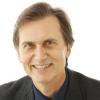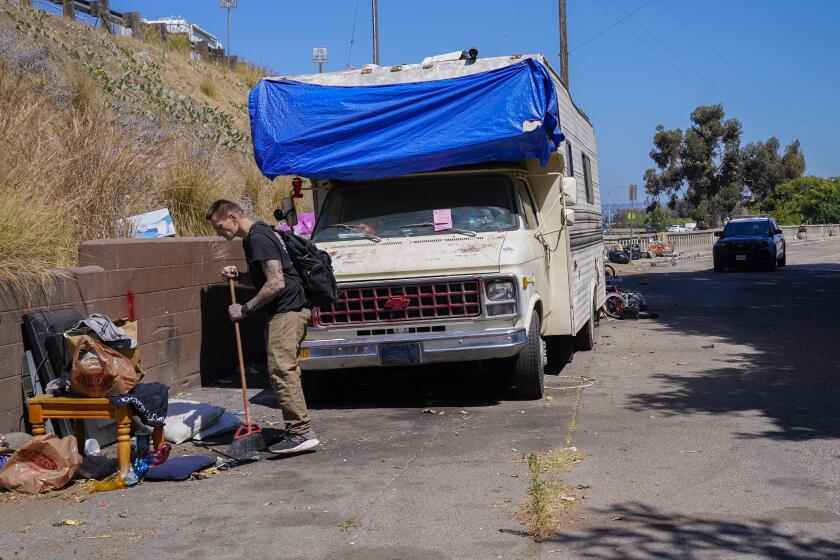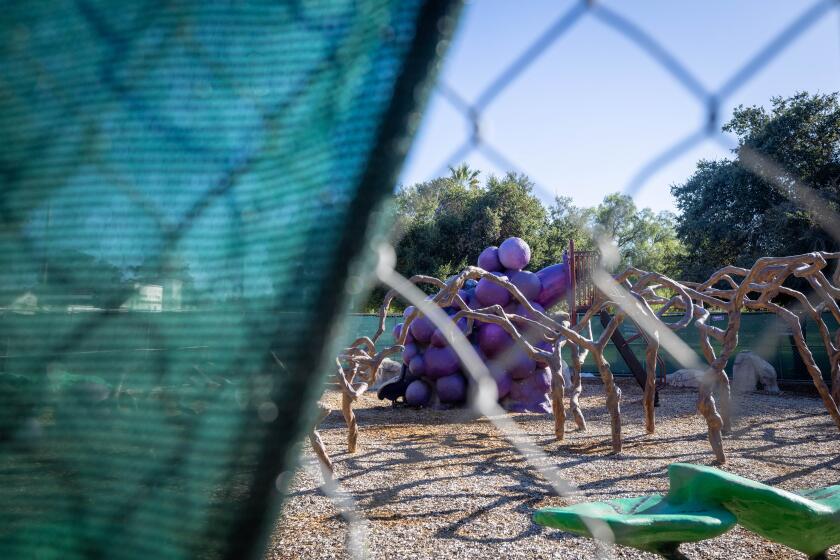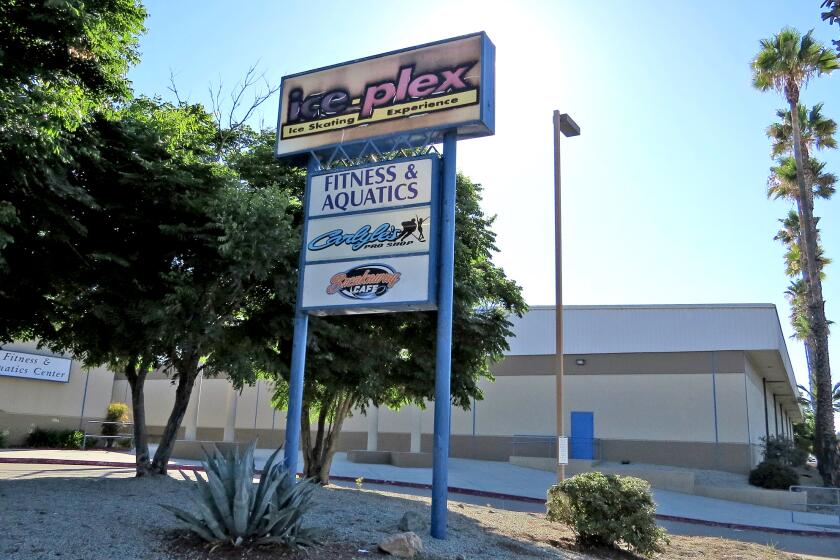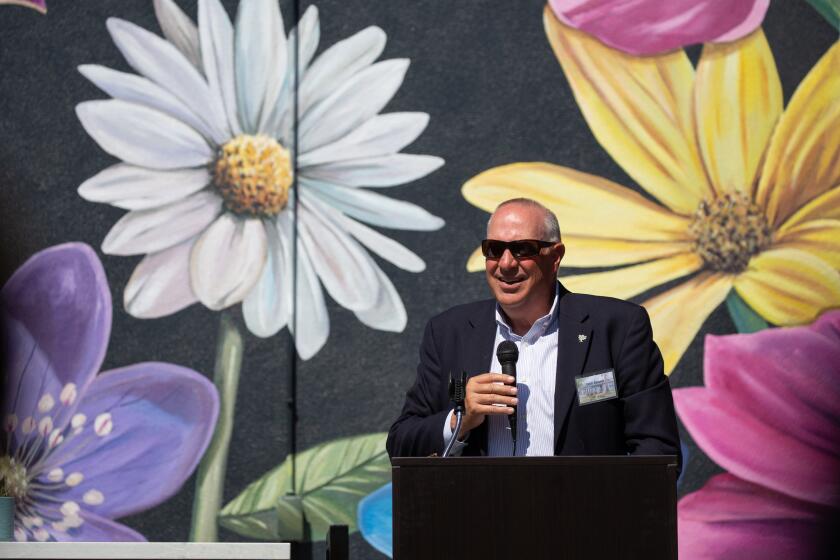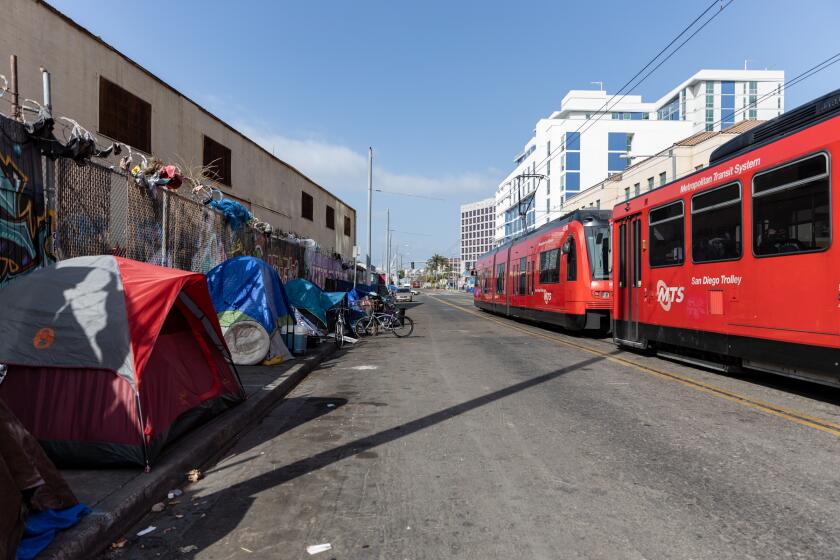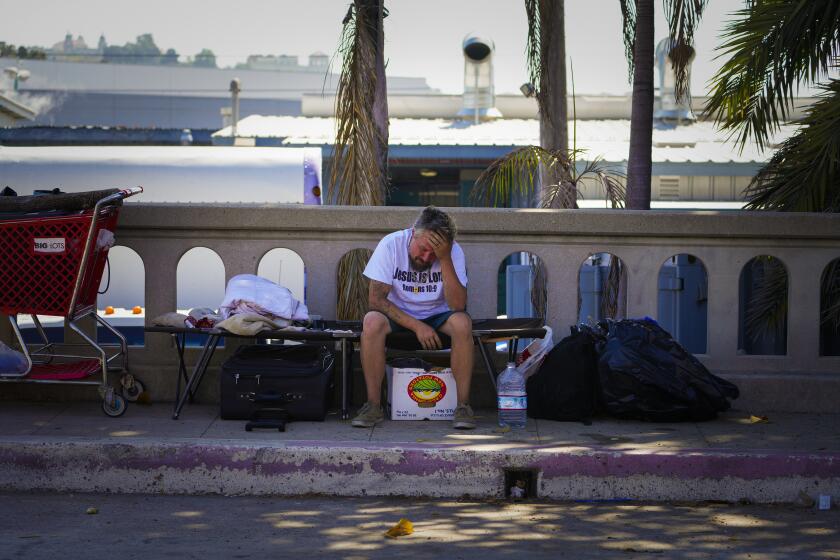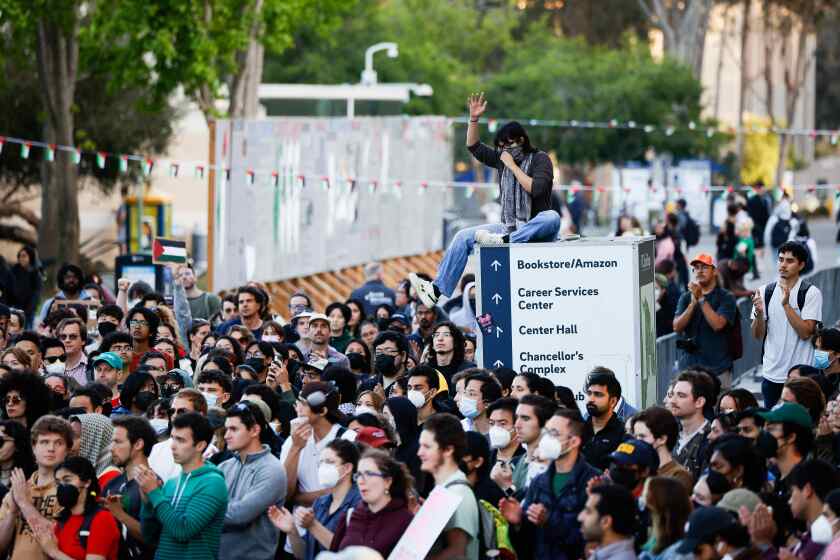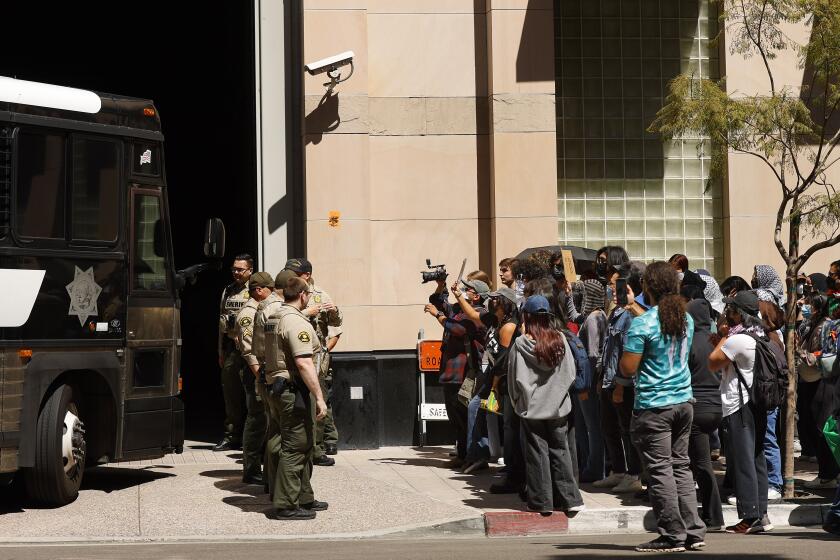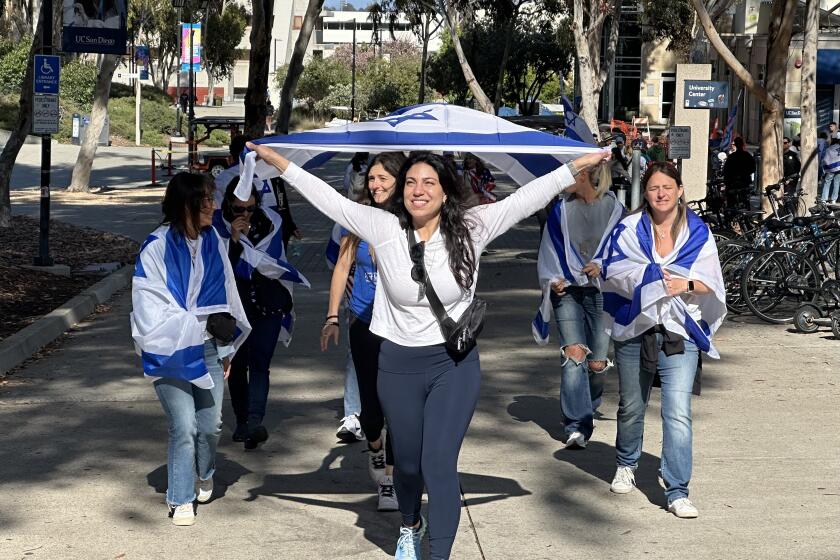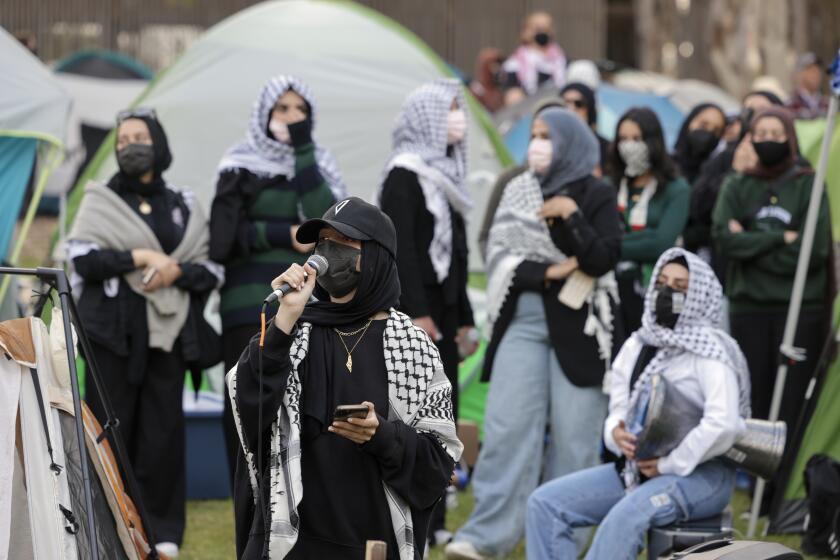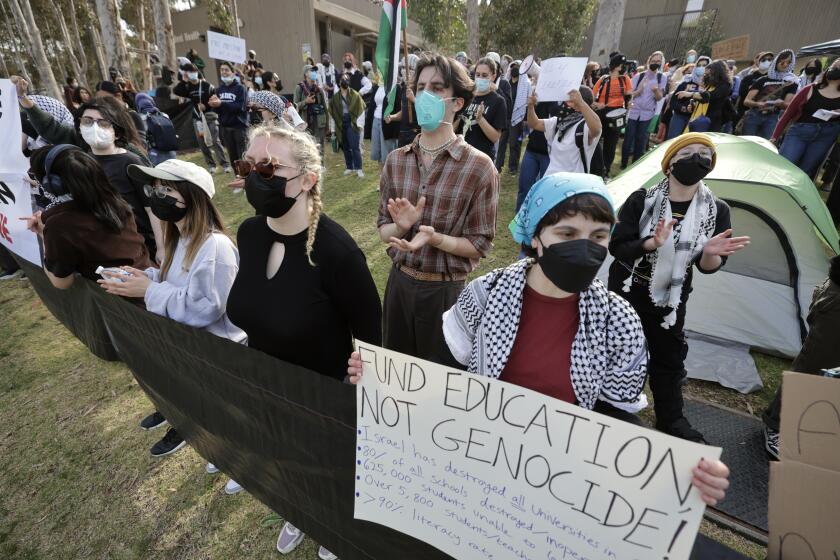Chancellor: Calmer times for CSU
Returning to the county for the first time since attending a tumultuous forum with faculty members and students at San Diego State University, California State University Chancellor Timothy White predicted more peaceful times are ahead.
“I think we’ll have labor peace now for the next two or three years, and it allows us all actually to work together to get the funding in Sacramento that we need,” White said last week during a visit to CSU San Marcos.
In early March, White participated in a forum at SDSU and was repeatedly interrupted by students and some faculty members over a variety of issues. For professors in the crowd, the forum was an opportunity to sound off about contract negotiations that were at an impasse.
While the CSU had offered faculty a 2 percent raise, the California Faculty Association had sought a 5 percent salary increase for 2015-16 and threatened a strike at all 23 CSU campuses beginning April 13. A settlement was reached April 9.
At CSUSM, White gave some insight into how the strike was avoided.
“One of the breakthrough moments was late in the game when finally there was an agreement that instead of trying to solve it in one budget year that ends in June of 2016, that we actually have three budget years to create the solution,” he said.
The tentative agreement is for a 5 percent increase on June 30 and a 2 percent increase on July 1. Another 3.5 percent increase will come July 1 next year
White said a similar settlement could not have been reached within one year without making cuts elsewhere. With the agreement worked out over three years, White said the system can focus on working at increasing state funding.
“To me, this whole thing really was a symptom of the under-resourcing of the CSU,” he said. “At the end of the day, we don’t have enough resources and capacities to serve the expectations and needs of Californians. That’s why we continue to make the case in Sacramento that this is an investment, not a cost to the state.”
White, who took office December 2012, had last been at CSUSM for a short visit last year. In 2014 he gave a 2014 commencement speech at a graduation that was delayed by the Cocos fire.
“I didn’t want a glossy brochure,” he said about the recent, full-day visit. “I wanted to sit down with faculty and staff and students and talk about what they were doing.”
White said his focus this year is on finding innovations in learning at the 23 CSU campuses.
Having surfed himself while growing up in Santa Cruz, White was particularly interested in a CSUSM research project that is looking into the health benefits of surfing.
Students and researchers in kinesiology are using metabolic and biomechanical analysis on subjects who paddle on a board in a flume while wearing electrodes that measure their heart rate, breathing and temperature. The researchers also are testing equipment for the surfing industry.
“Surfing used to be simple,” White said. “Now it’s a science.”
Besides his personal interest in the subject, White said he appreciated the study because it represents the type of learning that makes a connection with students.
“We know one of the ways to keep students in school and getting their degrees sooner is if there’s some kind of a hook,” he said. “It could be something in music, it could be something in whatever field. That’s where they ended up lighting up.”
White said he was encouraged to meet CSUSM students who were interested in going into fields that will be in high-demand in the near future.
With the state predicting a shortfall of about one million bachelor degrees in the next 15 years in growing high-skill fields, White said the CSU has to step up the number of degrees it is producing.
“While 2030 sounds like a long time away, those graduates are in first grade today,” he said.
The CSU produces about half the bachelor degrees in the state, meaning it must find a way of adding another 500,000 degrees to meet the growing demand in the next 15 years, White said.
While visiting the IT career center and student advising center on campus, White said he talked to students who are focused on having a meaningful career that is on the cutting edge of the economy.
“One of the things I really appreciated about San Marcos on all my visits is that it’s really focused on the success of students, not only to get their degree, but to use their degree for something that’s engaging for them but important for society,” he said.
Get Essential San Diego, weekday mornings
Get top headlines from the Union-Tribune in your inbox weekday mornings, including top news, local, sports, business, entertainment and opinion.
You may occasionally receive promotional content from the San Diego Union-Tribune.
